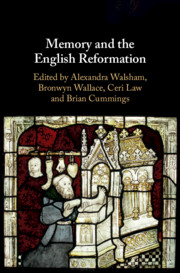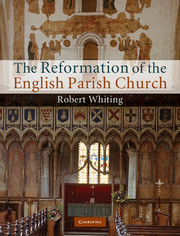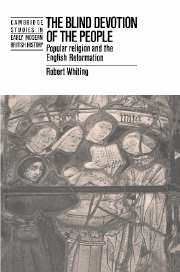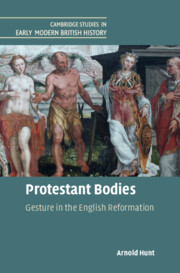Memory and the English Reformation
The dramatic religious revolutions of the sixteenth and seventeenth centuries involved a battle over social memory. On one side, the Reformation repudiated key aspects of medieval commemorative culture; on the other, traditional religion claimed that Protestantism was a religion without memory. This volume shows how religious memory was sometimes attacked and extinguished, while at other times rehabilitated in a modified guise. It investigates how new modes of memorialisation were embodied in texts, material objects, images, physical buildings, rituals, and bodily gestures. Attentive to the roles played by denial, amnesia, and fabrication, it also considers the retrospective processes by which the English Reformation became identified as an historic event. Examining dissident as well as official versions of this story, this richly illustrated, interdisciplinary collection traces how memory of the religious revolution evolved in the two centuries following the Henrician schism, and how the Reformation embedded itself in the early modern cultural imagination.
- Presents the Reformation as a complex arena within memory studies, involving ideas of construction, denial, repression, fiction and forgetting
- Includes multidisciplinary accounts of the conflicts between Catholicism and Protestantism in Early Modern England
- Offers new ways of understanding the cultural history of religion
Reviews & endorsements
‘This outstanding collection proves quite how essential the study of memory is for understanding religious history. Showcasing a rich variety of new ways to study the memory-making of the English Reformation, it will be a source of methodological and conceptual inspiration to all students of early modern memory and temporality.’ Judith Pollmann, Leiden University
‘In reconceptualizing the English Reformation from a single eruptive event to a protracted religious revolution of ongoing struggle and negotiation, this volume reassesses the nation’s devotional, liturgical, and monumental artefacts and practices, thereby setting for years to come the scholarly terms and parameters for understanding Protestant and Catholic interactions.’ Grant Williams, Carleton University
'… offers insights into the way in which the process of reform merged with memories of it, and bled into historical treatments, with influences on historiography lasting to the present day.’ Jacqueline Rose, Cercles
‘Scholarly interest in the social and cultural construction of memory has never been higher, … Memory and the Reformation is a remarkable collection of essays that does exactly what it sets out to do—show the reader how memory has been repudiated, rehabilitated, valorized, and memorialized, intellectually and materially.’ Autumn Reinhardt-Simpson, Reading Religion
‘This is that rare academic volume that is worth every penny of its purchase price, because readers will find themselves returning to it again and again. This book is a triumph.’ Mark Rankin, Reformation
‘This is that rare academic volume which is worth every penny of the purchase price, because readers will find themselves returning to it again and again. This book is a triumph.' Mark Rankin, Routledge Taylor and Francis Group
Product details
November 2020Hardback
9781108829991
425 pages
240 × 160 × 40 mm
1.2kg
Available
Table of Contents
- Introduction. Memory and the English reformation Alexandra Walsham, Brian Cummings and Ceri Law
- Part I. Events and Temporalities:
- 1. Nailing the reformation: Luther and the Wittenberg door in English historical memory Peter Marshall
- 2. Remembering the dissolution of the monasteries: events, chronology, and memory in Charles Wriothesley's chronicle Harriet Lyon
- 3. Remembering the past at the end of time Adam Morton
- 4. Henry VIII's ghost in Cromwellian England Christopher Highley
- 5. Remembering Mary, contesting reform: the English sonnets of the litany of Loreto Susannah Monta
- 6. Converting the cross: monuments, memory, and time in post-reformation England Alexandra Walsham
- Part II. Objects and Places:
- 7. Dolls and idols in the English reformation Joe Moshenska
- 8. Monuments and the reformation Peter Sherlock
- 9. Memorable motifs: the role of 'synoptic' imagery in remembering the English reformation Tara Hamling
- 10. Revitalizing antiquities: sacred silver and its afterlives in post-reformation England Tessa Murdoch
- 11. Re-reading ruins: Edmund Spenser and Scottish Presbyterianism Stewart Mottram
- 12. 'Monuments of our indignation': John Milton and the reception of Reformation iconoclasm in the seventeenth century Philip Schwyzer
- Part III. Lives and Afterlives:
- 13. Compromise refashioned: memory and life-writing in Matthew parker's roll Ceri Law
- 14. Heresy, history, and Henry V Susan Royal
- 15. The letters of the martyrs: remembering and reclaiming the apostolic form Johanna Harris
- 16. Competing lives and contested objects: Thomas More's hair-shirt and the production of memory Victoria van Hyning
- 17. Visual memory, portraiture and the Protestant credentials of Tudor and Stuart families Tarnya Cooper
- 18. Legends, shrines, and ruined tombs: memory and Reformation in female-voiced complaint Cathy Shrank
- Part IV. Rituals and Bodies:
- 19. The wounded missal: iconoclasm, ritual and memory in Reformation Yorkshire Brian Cummings
- 20. Gesture, meaning and memory in the English Reformation Arnold Hunt
- 21. Believers' baptism, commemoration, and communal identity in revolutionary England Rachel Adcock
- 22. Making memories in post-Reformation English catholic musical miscellanies Emilie Murphy
- 23. The liturgical commemoration of the English Reformation, 1534–1625 Alec Ryrie
- Index.







